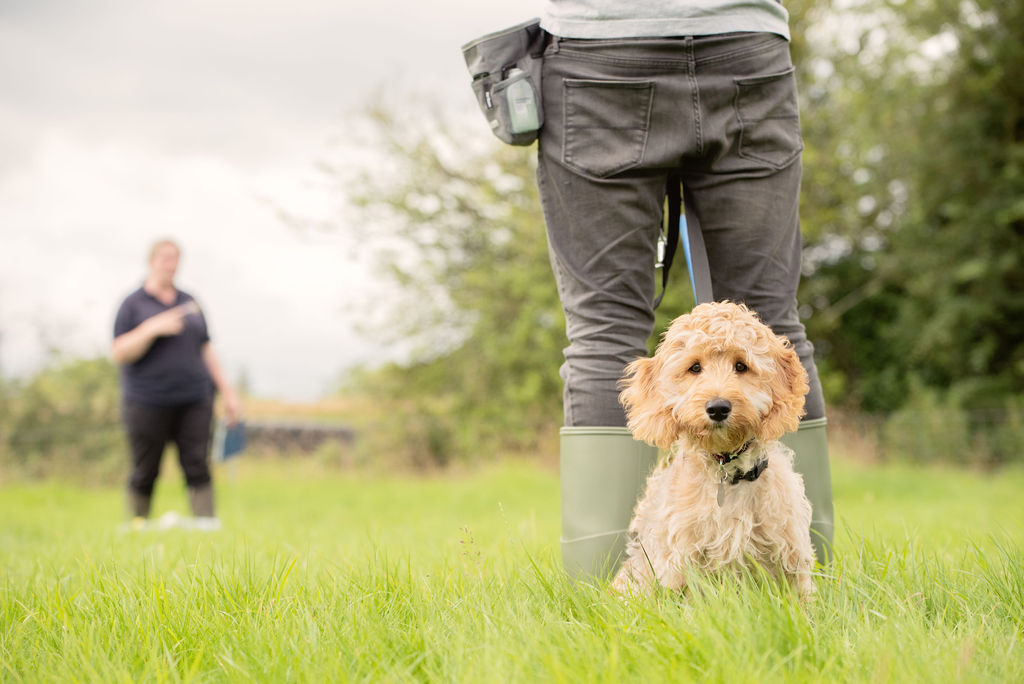
When you first get a dog, one of the things that’s on your checklist is to do some training with them. So, you jump on Google, type in dog training & your area, and see who comes up.
Wow – there’s loads!
If you haven’t had experience of dog training before, this can be really overwhelming and you probably won’t know where to start with trying to work out who is an ethical, force-free trainer who is the right fit for you. They all have great looking websites, but who’s really going to deliver what you want?
Here are our top eight questions you should ask a dog trainer BEFORE you book:
What experience does the trainer have in the area you want to work on?
It might surprise you to learn that different trainers may have different specialisms, particularly if you’re looking for a trainer to help you with more complex needs (e.g. if you have rehomed a rescue dog with specific issues).
For example, a trainer who runs GREAT puppy classes may not be the right person to help you with a specific issue such as separation anxiety
Make sure you discuss why you’re looking for a trainer and check that the person you’re considering booking with has the specific skills and experience to help you deal with the issue YOU want to tackle.
Does your trainer own their own dogs or have experience of dog ownership?
Someone who has experience of dog ownership will normally make a better trainer, because they’ve lived all the trials and tribulations first-hand. They’ve used a variety of training techniques with their own dogs and can utilise all the tips and tricks they’ve collected along the way. They can sympathise with what you’re going through and reassure you that it will be alright.
It also means they can relate when your dog isn’t perfect (sssshhh – but no dog is, not even the trainer’s!) or when you face setbacks and become disheartened. A great trainer is there to support and encourage you as much as to impart information!
Which is the best training format for my dog?
Trainers will offer sessions in a variety of formats, from workshops and group classes to 1-2-1 training. Some formats may be better suited to what you want to achieve than others, based on a number of factors including things like your dog’s temperament, how well they get on with other dogs, are they reactive or struggle with distractions, are you looking for support with more complex training issues.
Ask your trainer which they think will be the most effective format for your dog to learn – they’ll advise you based on their experience and the information you provide.
Does your trainer have a code of ethics?
Asking if your trainer has a code of ethics is something that is well worth doing, because it will give you an idea of their ethos and values. Canine welfare should always be an absolute priority when it comes to dog training, and if your trainer has a written code of ethics that demonstrates positive, force free practices, this will reassure you that you’ll be in good hands when it comes to training your dog.
How long will training take?
Ask the trainer how long the training will take and how soon you can expect to see results. This question is actually one that will tell you a lot about the training style – if someone promises you a quick-fix in a single session, it’s time to be very wary. This could suggest that they’re using aversive techniques and is probably one to avoid.
In reality, all training takes time, effort and consistency. A good trainer probably isn’t going to commit to a time-scale, in fact they’re more likely to tell you that training is a journey with milestones and setbacks along the way. As our motto says, training is for life, not just for puppies!
What happens when my dog gets it wrong?
Let’s face it, no-one is perfect. So it can be useful to ask what happens when your dog gets it wrong in training (because that’s sure to happen sooner or later). A great trainer will help you reinforce the basics of the training to build on solid foundations, adapting exercises to set you and your dog up for success and help you move at your pace through the programme. Repetition is key, so they’ll offer you suggestions to practise between classes and support your training journey.
If your trainer mentions using punishment, this should be a red flag to avoid them!
What happens when my dog gets it right?
Modern dog training is ALL about positive, force-free training, so any good trainer should respond to this question by talking about creating situations where your dog can and will succeed, rewarding your dog and building on positive emotions and experiences to make your dog ‘want’ to do make good choices and be able to do what you’re asking. If not, that’s another red flag.
What equipment is used during training classes?
Finding out what equipment your trainer uses is also an important element of ensuring they are a force-free, ethical trainer. Aversive equipment such as choke collars or electric collars use pain and punishment to enforce behaviours and so should be avoided. Slip leads can also cause pain or injury and should be avoided as well (although have their place in certain situations e.g. gundog training, but only when used for safety).